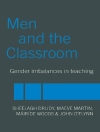Multiculturalism and multicultural education are at a paradoxical moment. There is work that continues as if the multicultural hegemony was still intact and on the other hand work articulated as if multiculturalism was decidedly passe. The essays in this collection will be of considerable interest to academics, policy makers and students of both multiculturalism and multicultural education principally because they touch on both perspectives but concentrate for the most part on the thorny problematic of the workings of multicultural education in its present precarious moment. Given the renewed, urgent attacks in various western countries, the cottage industry of “death of multiculturalism” texts and the rise of the interculturalism, transnationalism, diaspora alternatives, is multiculturalism dying? Are the ends of multiculturalism- the management or celebration of diversity; representation and recognition for all in society; creation of just and equitable communities at the global, national and local school classroom levels- better theorized and realized through the ascendant alternatives? Representing the precarious moment in Canada, Ireland, Australia, the United States and the United Kingdom, the essays in this collection address these questions and both depict and trouble hegemonic multicultural education and contrast it with its supposed successor regimes.
Daftar Isi
Note on Contributors; PART I PRECARIOUS MULTICULTURALISM; Chapter 1. Multiculturalism and Multicultural Education: Precarious Hegemonic Status Quo and Alternatives; Chapter 2. What was Multiculturalism?; Chapter 3. The Problematics of Multiculturalism in a Post-Racial America: Notes from an Anti-Multiculturalist; Chapter 4. Revolutionary Critical Pedagogy Against Capitalist Multicultural Education; Chapter 5. Towards a New Politics of Recognition: Multiculturalism and Assemblage of Iranian-Canadian Identities; Chapter 5. Towards a New Politics of Recognition: Multiculturalism and Assemblage of Iranian-Canadian Identities; PART II DIFFERENCE AND REPRESENTATION IN MULTICULTURAL EDUCATION; Chapter 7: ‘I’m Just Not That Kind of Person’: Choice, Agency and Economic Subjectivities in Multicultural Educational Contexts; Chapter 8. Gar na dai doe heem/Canada Apologies: Redress and a Pedagogy of Accountability; Chapter 9. Identity Roots and Political Routes: Immigrant Youth and The Political Poetics of Multiculturalism; Chapter 10. Indian to Indian: Building Alliances between South Asian and Aboriginal Peoples Through Critical Pedagogy and a Politics of Empathy; Chapter 11. Beyond Illusion of Inclusion: Implications for Education In Culturally Diverse Societies: Perspectives from Canadian Experience; Chapter 12. Researching Difference: Enacting Multicultural Education using Critical Ethnography; PART III STRETCHING MULTICULTURALISM: INCLUDING ALTERNATIVES; Chapter 13. Pedagogies of Intellectual Equality for Connecting with Non-Western Theories: Alternatives to Celebrating Multicultural or Sanctioning Fundamentalist Identities; Chapter 14. Repositioning Multiculturalism in Teacher Education Policy and Practice : A Case for Cosmpolitan Capabilities; Chapter 15. Debating Language, Culture, Race and Power: Is There A Difference Between Interculturalism and Multiculturalism?; Chapter 16. The Migrant Monsters of Multiculturalism in Andrew Currie’s Fido; Chapter 17. Why Multicultural Literacy? Multicultural Education Inside and Outside Schools; Chapter 18. The Warning of the Integrationist Alternative for Education and the Multicultural Backlash; Chapter 19: It’s all just Smoke and Mirrors: Isn’t there more than one way to be diverse; Index.












